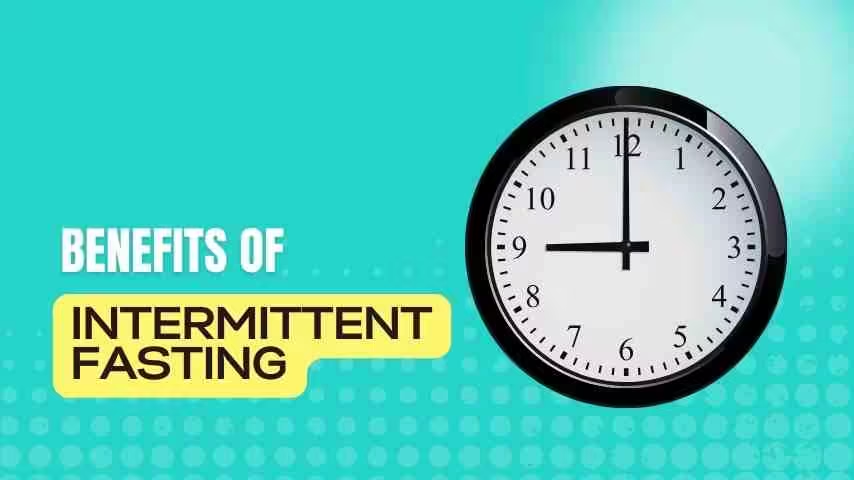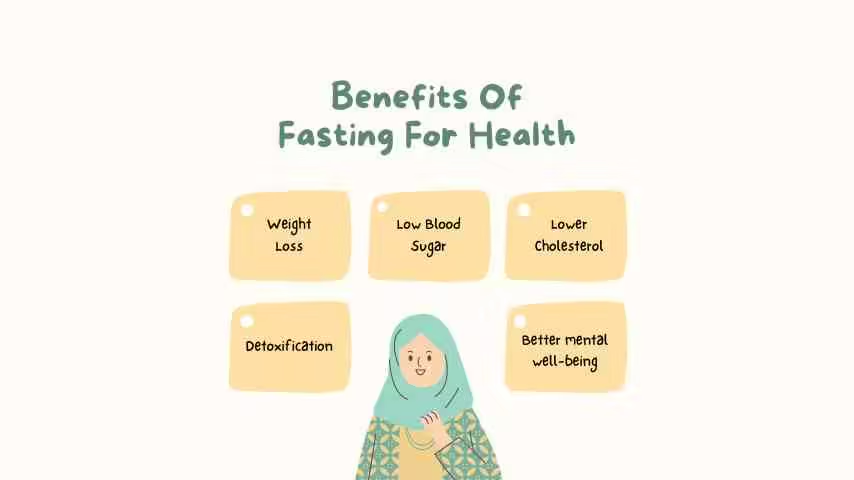Introduction
Intermittent fasting (IF) has become a fashionable practice in health and wellness circles, being praised for its possible benefits in weight loss, metabolic health, and longevity. Unlike typical diets, which focus on what to eat, intermittent fasting concentrates on when to eat. This entails alternating intervals of eating and not eating. It is an approach that taps into ancient eating patterns and has shown potential in various scientific studies. Intermittent fasting is important because it can provide a flexible and long-term approach to improving overall health.
Table of Contents
Key Issues or Aspects of Intermittent Fasting
Types of
There are several methods of intermittent fasting each with its unique approach to timing:
16/8 Method: The pattern largely involves 16-hour fasting periods followed by 8-hour feeding windows where all meals must be consumed within the latter period. For instance, taking food at noon then another meal at 8 PM.
5:2 Diet: This method allows for normal dieting during five days but this shifts drastically on two days when calorie intake falls to about 500-600 calories per day.
Eat-Stop-Eat: Here you don’t consume any food throughout a period of twenty-four hours once or twice weekly for example dinner until dinner.
Alternate-Day Fasting: This calls for cycles of normal consumption interleaved with complete fasting days.
Warrior Diet: This technique includes consuming raw fruits and vegetables during the day in small quantities and one large meal at night for only four hours each day with no other meals eaten.

Health Benefits and Risks
Nevertheless, the numerous advantages which intermittent fasting offers are attended by certain risks. People considering this lifestyle change need to understand them.
Health Benefits:
Weight Loss: Prompts caloric restriction as well as increased metabolic rates leading to fat burning resulting to weight loss through IF.
Better Insulin Sensitivity: It can contribute to a decline in blood sugar levels and mitigate insulin resistance associated with type 2 diabetes mellitus.
Heart Health: For example, IF may reduce LDL cholesterol, inflammatory markers and blood pressure among others.
Brain Health: There are signs from animal studies that IF boosts brain function and increases its resistance to stress.
Longevity: These studies suggest that IF can prolong lifespan by enhancing metabolic health while lowering risks of diseases.
Risks:
Nutritional Deficiency: If meals are not well balanced during prolonged fasting periods, then nutrient deficiencies will occur.
Eating Disorders: People who have suffered from anorexia or bulimia before may have difficulty sticking to IF.
Hormonal Changes: In some cases, women especially may suffer hormonal imbalances affecting their menstrual cycle patterns due to intermittent fasting.

Impact or Importance of Intermittent Fasting
Societal Impact
Intermittent fasting is not just another diet but rather a new way people view food and health. This has made it popular across multiple demographics because of being straightforward as well as adaptable. In a society increasingly plagued by obesity and lifestyle diseases, IF offers a promising alternative to traditional dieting, promoting a healthier relationship with food.
Health Impact
The impact on health of intermittent fasting is striking. IT provides structured eating guidelines for the management and prevention of chronic diseases. By reducing calories intake and having periods where no foods are eaten, the body switches to using stored fat which improves metabolism. Additionally, there are claims that IF may be linked with reduced inflammation which is one of the primary triggers for many chronic ailments.
Impacts in wellness industry
Intermittent fasting has become very popular in the wellness industry and has led to development of products and services. This includes fasting apps, IF-friendly meal delivery services and more. It is a clear signal that there is an increasing demand for sustainable and scientifically-based health strategies.
Strategies or Solutions for Successful Intermittent Fasting
Getting started with intermittent fasting
Starting intermittent fasting can be challenging particularly for beginners. Here are some useful pointers to get you going:
Selecting the right method: Choose a method that suits your lifestyle and preference as regards intermittent fasting. 16/8 is often the best approach for beginners.
Stay Hydrated: Drink lots of water and non-caloric beverages during fast to quench thirst, hungry pangs.
Eat Balanced Meals: Make sure that you consume an eating window full of nutrient dense foods that will prevent deficiencies and keep energy levels up.
Pay Attention to Your Body’s Signals: Observe how your body reacts when it comes to hunger through fasting period. If there is persisting tenderness or even negative effects, consider adjusting the approach.
Make A Gradual Transition: Instead of jumping into long term fasts immediately, increase your periods of fasting gradually while allowing your body time to adapt.
Maintaining a Healthy Intermittent Fasting Routine
Consistency and mindfulness are key aspects of maintaining a healthy IF routine:
Plan Your Meals Ahead of Time: Ensure your meals contain protein, healthy fats, carbohydrates among other nutrients. Avoid processed foods including sugars.
Monitor Your Progress: Take note of your meals while also tracking down how you feel during the process so as to help make useful adjustment in terms of patterns made out from the information collected,
Stay Active During the Fast Periods: Exercise regularly to complement your fast periods boosting overall benefits related to wellbeing,
Find Others Also on The Same Journey: Seek support from either an online community or find a fasting buddy to help you through the journey with experiences, advice and motivation.
Case Studies or Real-life Examples
Weight Loss Success – Case Study 1
Sarah, a 35-year-old professional had been fighting weight issues after experimenting with various diets. She chose to try out 16/8 intermittent fasting. Sarah lost twenty pounds gradually in six months by eating between noon and 8 PM. According to her, she felt more energetic and less likely to snack thus enabling her maintain her weight loss.
Improved Health Markers – Case Study 2
John was a fifty-year-old man with prediabetes who decided to go on the 5:2 diet. After just half a year, his blood sugar levels became normal and he dropped fifteen pounds of fat. As per regular checkups his insulin sensitivity got improved while inflammation markers reduced. Intermittent fasting was attributed by John as the reason for his enhanced health which still continues as is now.
Conclusion
Intermittent fasting can be described as a flexible and sustainable method aimed at enhancing health and wellness among people. It offers an alternative approach for traditional forms of dieting since it is based not on what you eat but when you eat it. The several methods of intermittent fasting provide choices for individuals’ lives styles and preferences unlike other modes of dieting such as whole day fasts or even low carb diets for life which are very restrictive.
While there are numerous health benefits related to this practice, it’s important to know that there might also be risks involved if done without mindfulness or balance towards self-care; an aspect clarified through these two real life cases where weight loss goes hand in hand with better health indicators resulting from IF. Popularity growth of intermittent fasting has led to great changes regarding how human beings think about food and nutrition values more so on matters concerning their health status. Maybe you want loose some weights perhaps control a chronic condition or rather have an enhanced general health, intermittent fasting is a promising and a flexible solution.
Frequently Asked Questions
1. What is intermittent fasting?
Intermittent Fasting is a dietary practice that rotates between the states of feeding and not eating. It can be practiced in different forms such as 16/8 method, 5:2 diet and alternate day fasting.
2. What are the benefits?
Weight loss, improved insulin sensitivity, cardiac health, enhanced brain function, increased longevity – all these are potential effects of intermittent fasting. These health gains occur when fat gets used up for energy when there is no food being taken.
3. Is intermittent fasting safe for everyone?
While this type of diet is generally safe, it may not be suitable for everyone. Before going on this trip, consult your doctor if you have any nutritional deficits or an eating disorder.
4. How should I start doing intermittent fasting?
Firstly, select a form that suits your lifestyle like the 16/8 method; secondly keep yourself hydrated; thirdly eat nutrient rich foods; fourthly listen to your body and finally progressively extend periods without eating.
5. Does intermittent fasting help with weight loss?
Yes! That way it helps reduce calorie intake and increase metabolism during the hours of non-eating thereby helping in reducing weight and fats in the body through this process.

